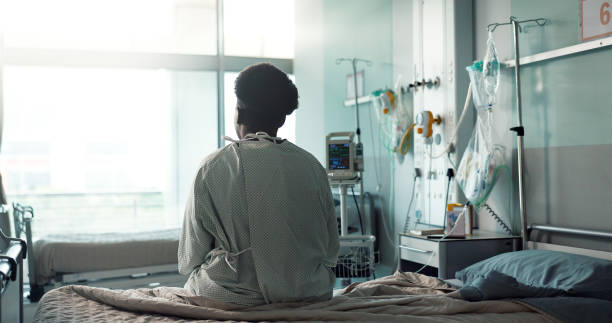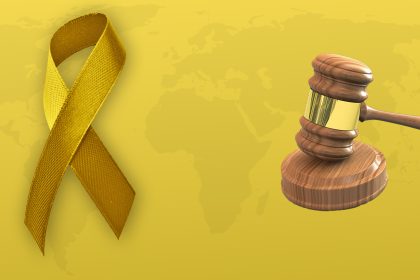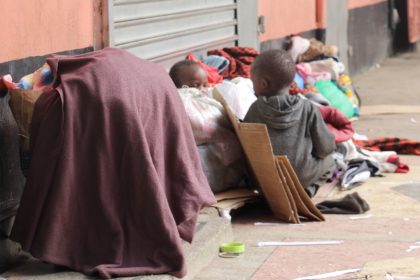What she doesn’t remember is when the abuse began. Then one day she left the house, a petrol jerrycan in one hand, and a pack of matches in the other.
Disclaimer: This story touches on sensitive issues, including Gender-Based Violence, suicide and mental health- which may be distressing to some audiences. It may stir emotions and evoke painful memories. Please approach with care and pause if needed.

It is 2012.
Jane* sits on her hospital bed poignantly thinking about her wedding day. She is 58. It has now been almost 40 years since she got married and she doesn’t remember who she was before her husband, and worse, she doesn’t know what she has become.
She remembers how happy she was that day, getting married to a prominent government official, a good man with a good character- or so everyone thought. The day was as colourful as can be expected of weddings, and despite all the political speeches that were given, she did not mind any of it.
Their first years together were blissful. She had just finished her diploma in education and started a job as a P1 teacher. Every morning, she would be driven to school in a government car courtesy of her husband. The other teachers, most secretly jealous of her life, took to calling her Margaret Thatcher.
What she doesn’t remember, however, is when the abuse began. Her earliest recollection was the day she asked him for help so that she could get a job as a secondary school teacher. She had furthered her education and was ready to climb the career ladder.
He reacted with such revulsion, as if what she had asked was the most abominable thing he had ever heard, ripped the documents she’d given him, cursed at her and personally went to the Teachers Service Commission to tell her boss to not promote her.
After that it was a downhill run. He would beat her even in the presence of their children. He did not spare words as well, and he’d dish out abuses generously, becoming cruder with each beer bottle.
The hospital psychologist walks in, interrupting her thoughts. This is the third time she has come to try to get her to disclose the events that happened a week ago, but she and everyone else have not been successful in getting her to say anything. She is in pain. She is embarrassed. She is still in shock. But mostly, she fears what her husband will do to her if she says anything.
The unutterable events of last week started when one of her husband’s guards informed her that he had sold another of their properties to pay off gambling debts. What the guard didn’t know, however, was that this piece of land he had sold, she had bought from years of saving and was planning to put it to good use to support her children.
He had forged her signatures, and being a ‘big man’, nobody had dared ask any questions. As if that wasn’t bad enough, this was the last property they owned, having sold off everything to sustain his gambling and drinking addiction.
That had been the last straw for her. Bitterness and rage possessed her, and she had left the house, a petrol jerrycan in one hand and a pack of matches in the other. They would “die together tonight” she thought as she approached the club where he was drinking with his friends. If he wanted their children to suffer, then they’d better die than watch them suffer. She walked in, and because of his raucous nature when he was drunk she immediately spotted his coterie.

She walked up to his table and cornered him. The roles are now reversed; she is the one hurling insults, and he is cowering before her. The madness in her eyes sent chills down his spine. Suddenly she pulled him to her, as if trying to force an embrace, opened the petrol jerrycan and poured its contents on both of them, took out the matches and struck it. The next thing she heard was a loud explosion, and then she was on fire. Her husband, who had realized what she was about to do, had managed to push her away just as she struck the match and he only got away with minor burns on his hands, ran to the bathroom and locked himself.
The guard ran inside after hearing the piercing screams and came to her rescue, by the time the ambulance arrived, she had passed out from the pain. When she woke up, she was in Kenyatta National Hospital having sustained severe burns on her hands, chest, neck and face.
She was discharged after a month in the hospital. Back at home, she had become an outcast. The story going around was that she wanted to kill her husband for his money, but her attempts had backfired. It explained why nobody visited her when she was in the hospital except for her children. At work, her fellow teachers treat her with contempt, and some, albeit unsuccessful, try to get her fired.
The most hurtful experience however happened on Sunday. She had been looking forward to reuniting with her church community, where she had served as one of the church leaders for many years. Because the burns on both hands limited her functionality and slowed her down, she had woken up early and left the house in good time.
But immediately she walked inside the church compound, the pastor, a former beneficiary of handsome donations from her husband, quickly approached her, pulled her aside to admonish her, telling her she could no longer be fellowshipping there after her demonic acts.
It is 2022.
Jane is seated hunched over the uncomfortable hospital benches, waiting to see the doctor. She has been on the queue for almost six hours. But she doesn’t mind. She has all the time in the world. More importantly, she has been waiting for this day for 10 years. An hour later, her name is called. She struggles to stand up, the arthritis having eaten away at her knees, and slowly makes her way to the consultation room.
She steps into the brightly lit room, courteously saying hello to the doctor standing by the door waiting for the nurse to hand him the patient’s file. She winces as she sits on the cold plastic chairs. Her face is covered halfway with a scarf, and another one is snugly wrapped around her neck.
As soon as the doctor asks her reason for coming, she quietly begins removing the scarves. The process is made slow by the scars that render both her hands deformed. Finally, she lays bare the extensive scars on her face, chest, neck and arms from the burn injuries that she suffered 10 years ago. The scars on her neck and chest are so bad that they affect her breathing and her ability to turn her head on either side. Another scar, extending to her lower lip turning it outward, has made speaking an incredible chore. She asks if anything can be done about them.
“It says here you got these injuries in 2012. Why has it taken you 10 years to come back?” I ask, wondering why she did not come earlier for contracture release, seeing how much she struggled. That is when she begins telling us her story. The entire time she is speaking laboriously, I keep on glancing at the doctor, to see if he’s as perturbed as I am. He also looks stunned and shuffles in his seat uncomfortably but doesn’t interrupt her.
“He died last year from lung complications because of smoking. After he died the silence was broken and I felt like I could finally speak about all the trauma he put my children and me through. This is the first time I’ve talked about that day after all these years.” She says, holding back tears, “I am now ready to start healing.”
*Jane’s name has been changed for confidentiality purposes.
Where to find help: If you or someone you know is struggling, support is available. Reach out to a trusted professional or local helpline —you are not alone.
Dr Nyandia Maina is a creative writer, columnist, photo essayist and medical doctor.






















I appreciate your clear and concise explanation.This resource might also be helpful to your readers.